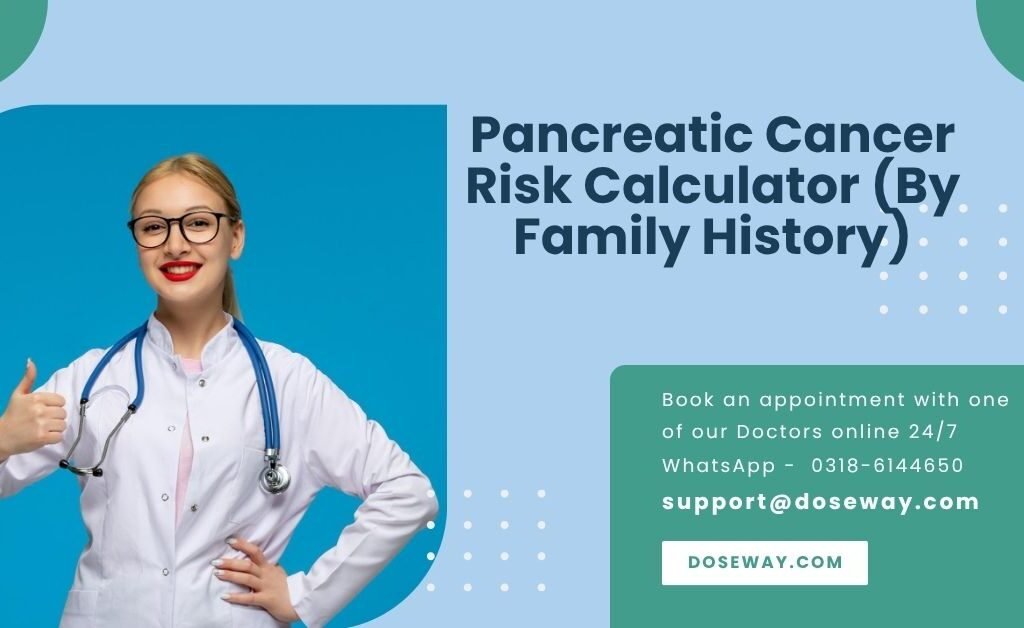Pancreatic Cancer Risk Assessment
Personal Information
Health Parameters
Try More Free Tools:
- Try our Chronic Appendix Inflammation Risk Assessment Quiz
- Try our Appendectomy Recovery Timeline Estimator by Age
- Try our Alvarado Score – Alvarado Score Appendicitis (Free Tool)

Table Of Contents
Pancreatic Cancer Risk Assessment: Calculate Your Risk and Take Control
Pancreatic cancer remains one of oncology's most formidable challenges. Early detection dramatically improves survival odds, yet symptoms rarely surface until advanced stages. Our free risk calculator empowers you with personalized insights using clinically validated parameters. Discover your risk level and actionable prevention strategies below.
Decoding Pancreatic Cancer: The Silent Threat
What Is Pancreatic Cancer?
Malignant cell growth in pancreatic tissues characterizes this disease. The pancreas regulates digestion and blood sugar, making cancer here particularly disruptive. Two primary types exist:
- Exocrine tumors (95% of cases)
- Neuroendocrine tumors (5%)
Why Early Detection Matters
With a 5-year survival rate below 12% for late-stage diagnoses, proactive risk assessment is critical. Our tool identifies high-risk individuals before symptoms manifest.
Critical Risk Factors Evaluated
Demographic Risks
- Age: Risk triples after age 50
- Gender: Males face 30% higher incidence
- Ethnicity: Ashkenazi Jews and Black Americans show elevated risk
Lifestyle Contributors
| Factor | Risk Increase |
|---|---|
| Smoking (1+ packs/day) | 200% |
| BMI >35 | 55% |
| Heavy alcohol use | 40% |
Medical Predispositions
- Diabetes: New-onset post-50 raises suspicion
- Chronic pancreatitis: 15x higher risk
- Genetic syndromes: BRCA2, PALB2, Lynch syndrome
Inside the Risk Assessment Algorithm
Calculation Methodology
Our tool adapts the PancPRO model, weighting factors like:
- Age points (0-5)
- Genetic burden score (0-8)
- Lifestyle modifiers (0-6)
Input Parameters Explained
- Clinical history: Pancreatitis duration, diabetes onset
- Biometric data: BMI trends, waist-to-hip ratio
- Genetic markers: Family cancer patterns
Interpreting Your Results
Risk Stratification Guide
- Low (0-4 points) : Below population-average risk
- Moderate (5-8 points) : Requires vigilance + annual screening
- High (9+ points) : Immediate diagnostic consultation
Sample High-Risk Profile
*62-year-old male smoker with:*
- BMI 32 (+3)
- Father with pancreatic cancer (+4)
- New diabetes diagnosis (+2)
- Total: 9 points (High risk)
Proactive Prevention Roadmap
Evidence-Backed Risk Reduction
- Smoking cessation: Risk drops 50% within 2 years
- Metabolic health: Maintain BMI 18.5-24.9
- Alcohol moderation: ≤1 drink/day
- Screening protocols: EUS/MRCP for high-risk individuals
When to Seek Medical Evaluation
🩺 Unexplained weight loss >10 lbs
🩺 Persistent epigastric pain
🩺 Jaundice without gallstones
Knowledge Is Your Best Defense
This calculator provides personalized risk awareness—not medical diagnosis. Combine these insights with professional healthcare guidance for comprehensive prevention.
Disclaimer
This tool provides educational estimates only, not medical diagnoses. Always consult healthcare professionals for personal health decisions.
Frequently Asked Questions (FAQs) -
How accurate is this calculator?
Based on JAMA Oncology validation studies (82% sensitivity). Always consult physicians for diagnosis.
Can diet influence pancreatic cancer risk?
Yes. Processed meats increase risk by 19%, while cruciferous vegetables lower it by 22%.
What screening tests detect early tumors?
Endoscopic ultrasound (EUS) and biomarker CA19-9 blood tests.
Does family history guarantee cancer development?
A: No. While risk increases 4-6x, most cases remain sporadic.

 Cart is empty
Cart is empty
Add a Comment